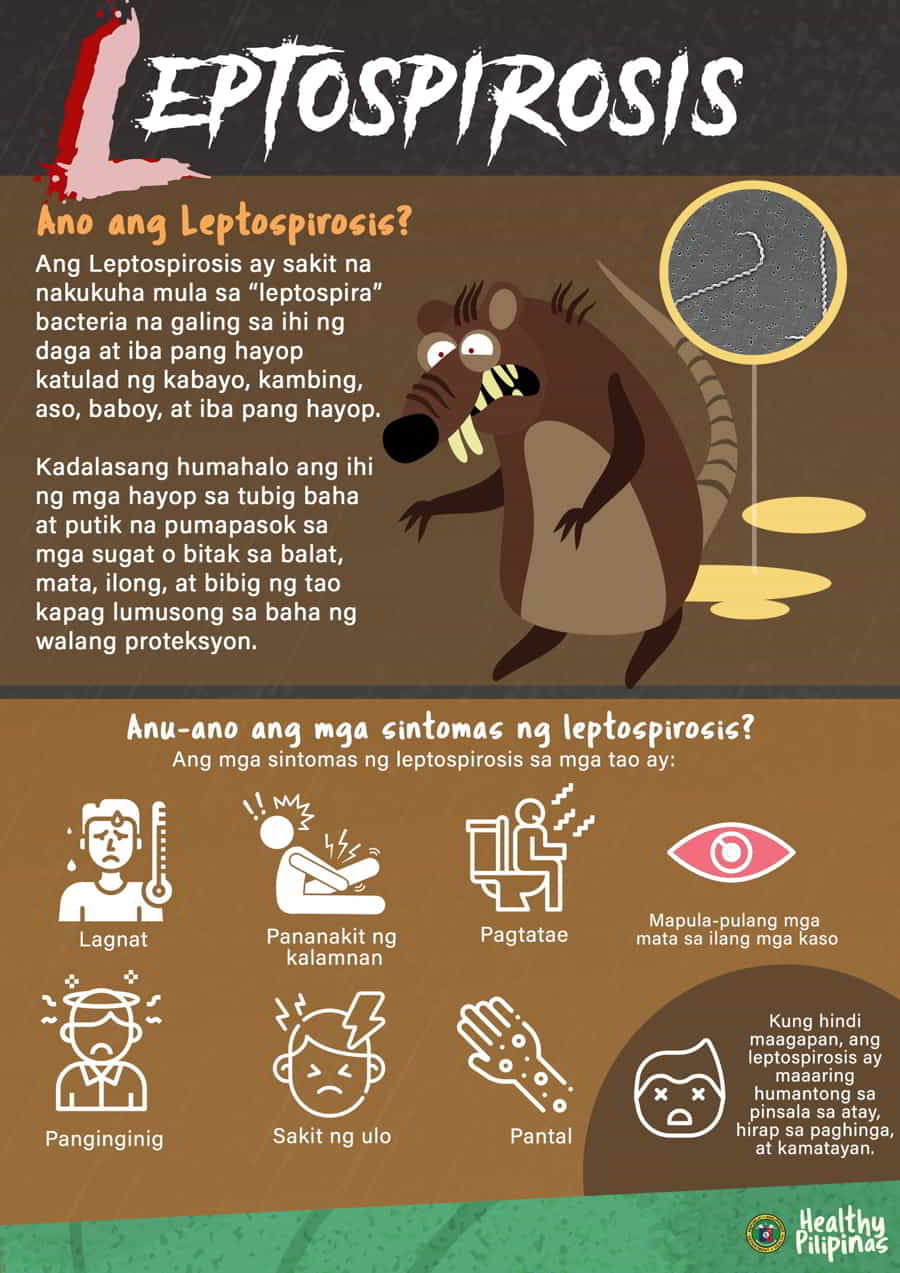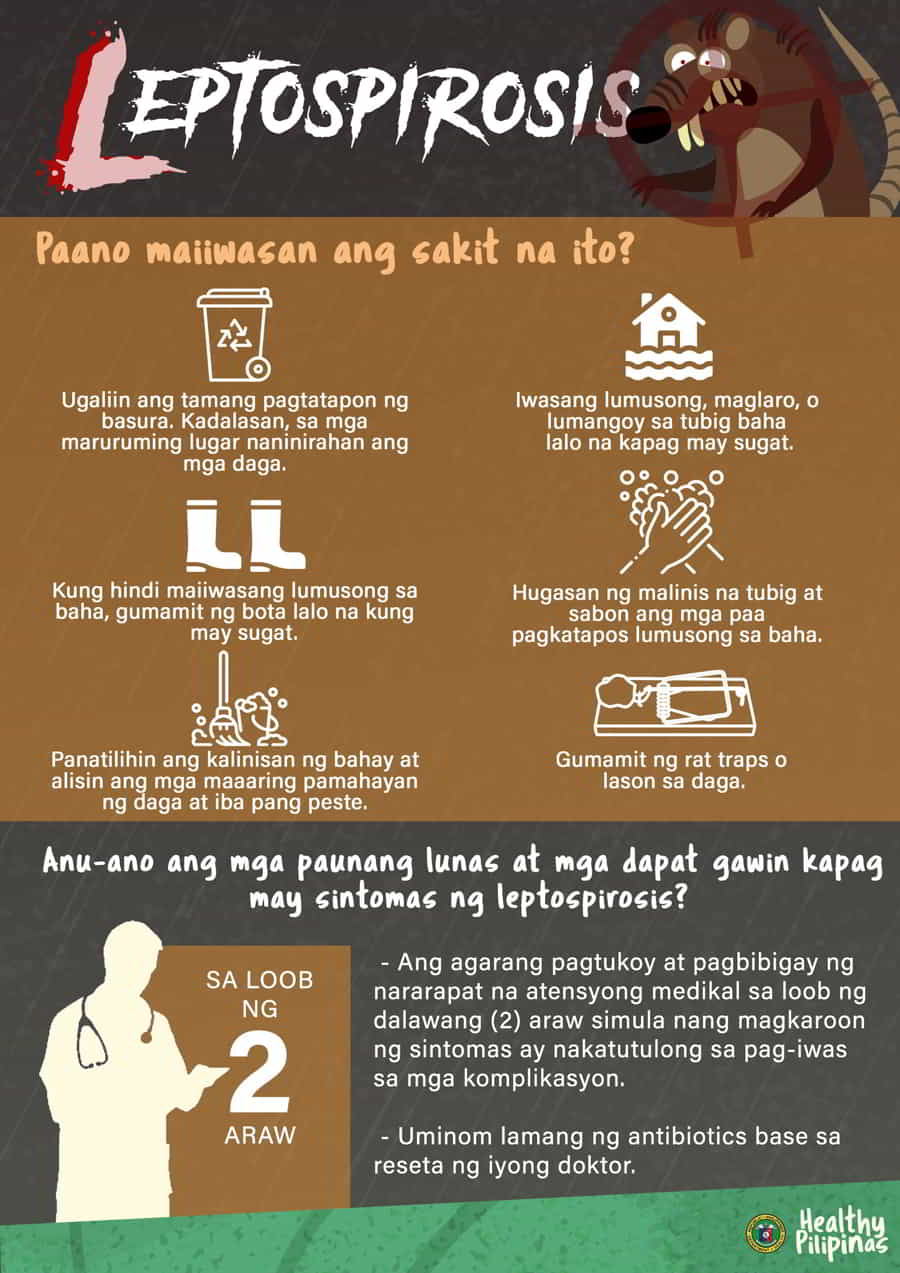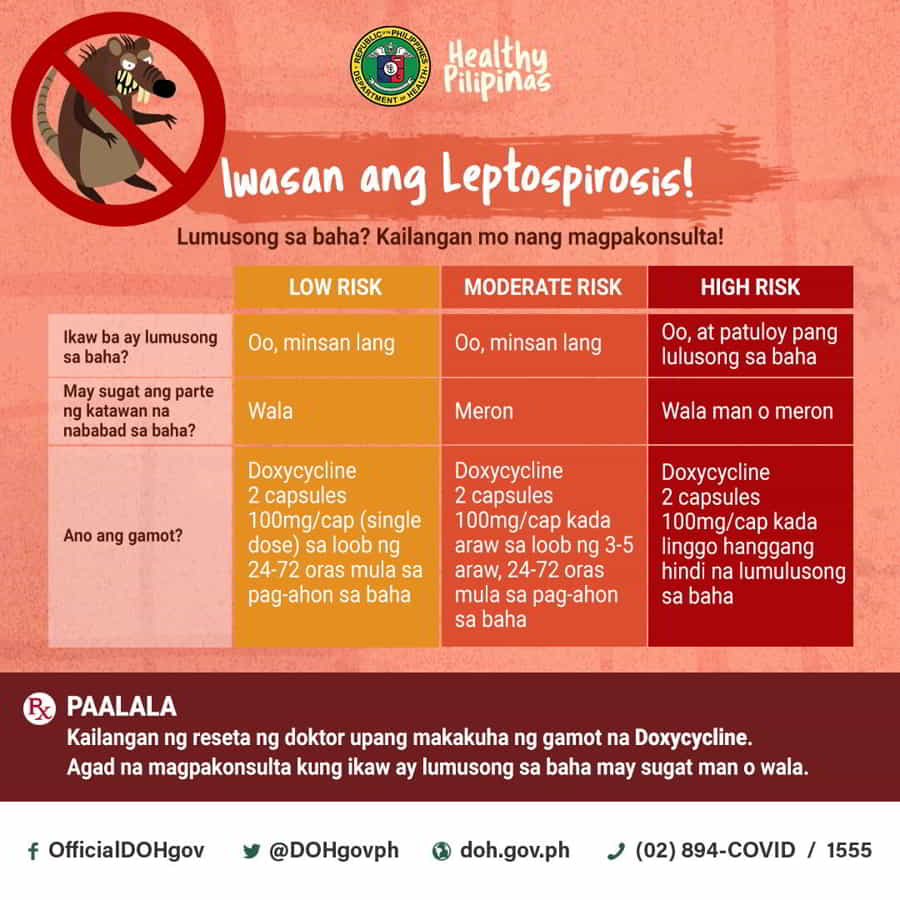Leptospirosis is a bacterial disease that affects humans and animals. It is caused by bacteria of the genus Leptospira. In humans, it can cause a wide range of symptoms, some of which may be mistaken for other diseases. Some infected persons, however, may have no symptoms at all.
Without treatment, Leptospirosis can lead to kidney damage, meningitis (inflammation of the membrane around the brain and spinal cord), liver failure, respiratory distress, and even death.
Incubation Period: 7-10 days
These can include, but are not limited to:
Infected animals may continue to excrete the bacteria into the environment continuously or every once in a while for a few months up to several years.
Humans can become infected through:
Kung may lagnat ng 2 araw, agad na komunsulta sa doktor.
Buhay ay mahalaga, huwag lumusong sa baha.
Without treatment, Leptospirosis can lead to kidney damage, meningitis (inflammation of the membrane around the brain and spinal cord), liver failure, respiratory distress, and even death.
Incubation Period: 7-10 days
Mode of Transmission:
The bacteria that cause leptospirosis are spread through the urine of infected animals, which can get into water or soil and can survive there for weeks to months. Many different kinds of wild and domestic animals carry the bacterium.These can include, but are not limited to:
- Cattle
- Pigs
- Horses
- Dogs
- Rodents
- Wild animals
Infected animals may continue to excrete the bacteria into the environment continuously or every once in a while for a few months up to several years.
Humans can become infected through:
- Contact with urine (or other body fluids, except saliva) from infected animals.
- Contact with water, soil, or food contaminated with the urine of infected animals.
Signs and Symptoms:
- Fever
- Non-specific symptoms of muscle pain, headache
- Calf-muscle pain and reddish eyes fro some cases
- Severe cases result to liver involvement, kidney failure or brain involvement. Thus some cases may have yellowish body discoloration, dark-colored urine and light stools, low urine output, severe headache.
Treatment
- Antibiotics duly prescribed by a physician.
- i>Early recognition and treatment within two days of illness to prevent complications of leptospirosis, so early consultation is advised.
- Intravenous antibiotics may be required for persons with more severe symptoms. Persons with symptoms suggestive of leptospirosis should contact a doctor
Prevention and Control
- Avoid swimming or wading in potentially contaminated water or flood water.
- Use of proper protection like boots and gloves when work requires exposure to contaminated water.
- Drain potentially contaminated water when possible.
- Control rats in the household by using rat traps or rat poison, maintaining cleanliness in the house.
- Protective clothing or footwear should be worn by those exposed to contaminated water or soil because of their job or recreational activities.
LEPTOSPIROSIS NAKAMAMATAY!
- Iwasang lumangoy, lumusong at maglaro sa baha.
- Gumamit ng bota kung kailangang lumusong sa baha.
- Sumakay sa bangka or rubber boats kung aalis ng bahay.
Mga Palatandaan ng Leptospirosis
- Lagnat
- Panginginig ng katawan o "Chills"
- Pananakit ng ulo, binti, kalamnan at kasu-kasuan
- Pamumula ng mga mata
- Paninilaw ng balat
- Nahihirapang umihi
Kung may lagnat ng 2 araw, agad na komunsulta sa doktor.
Buhay ay mahalaga, huwag lumusong sa baha.






